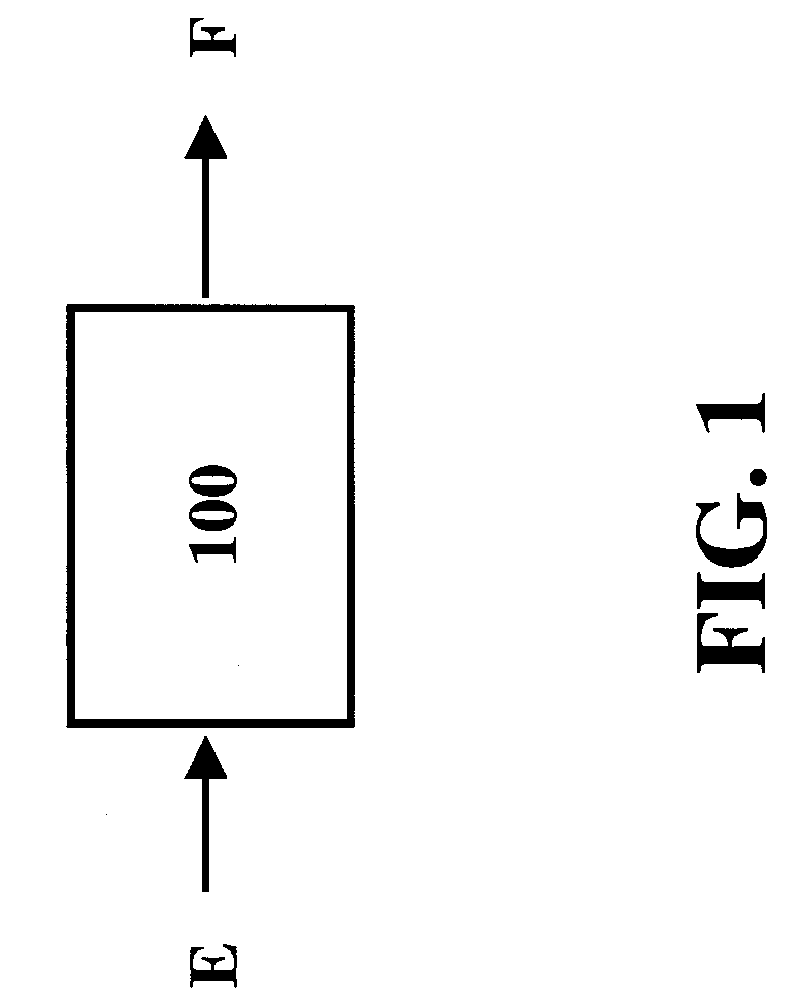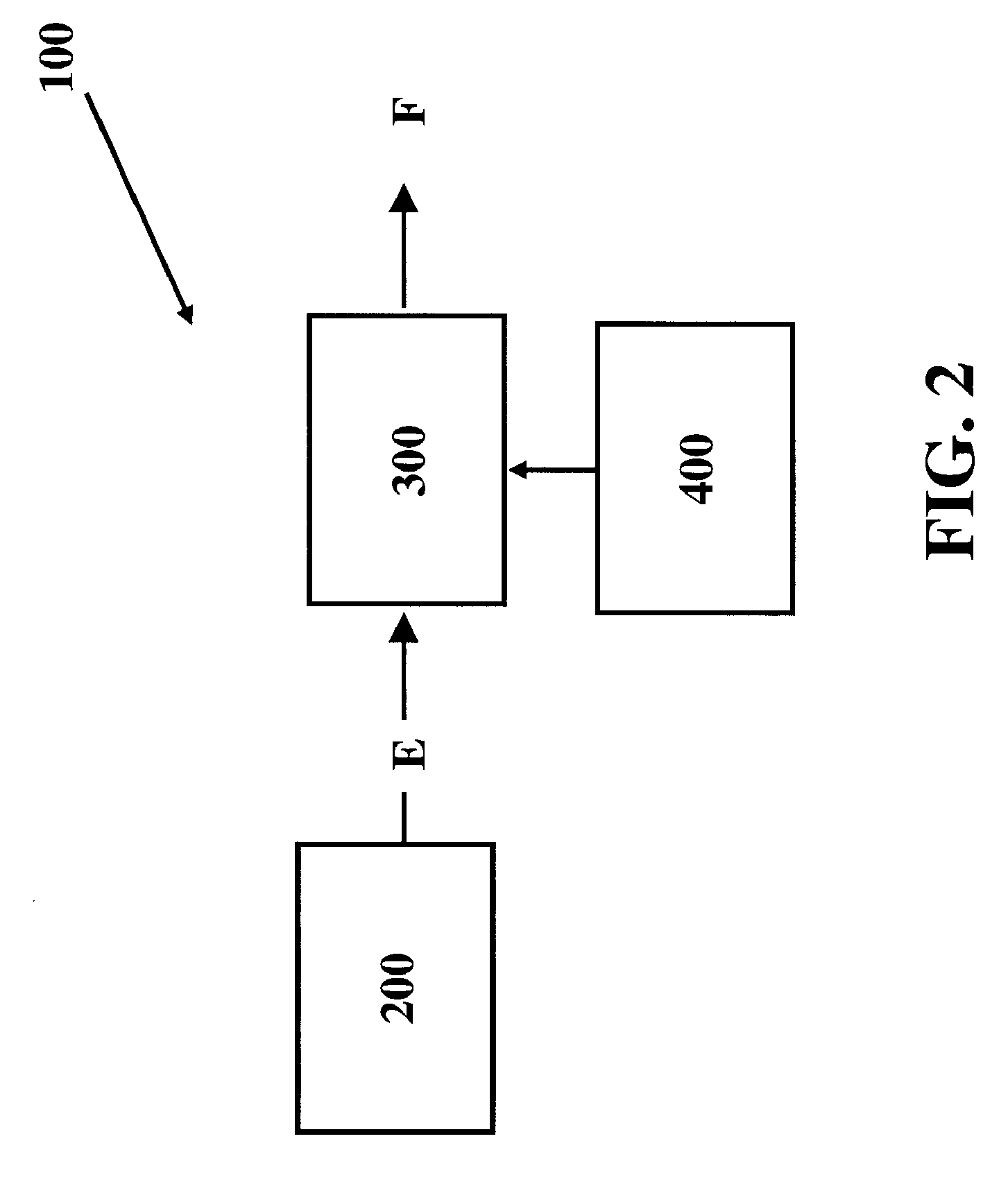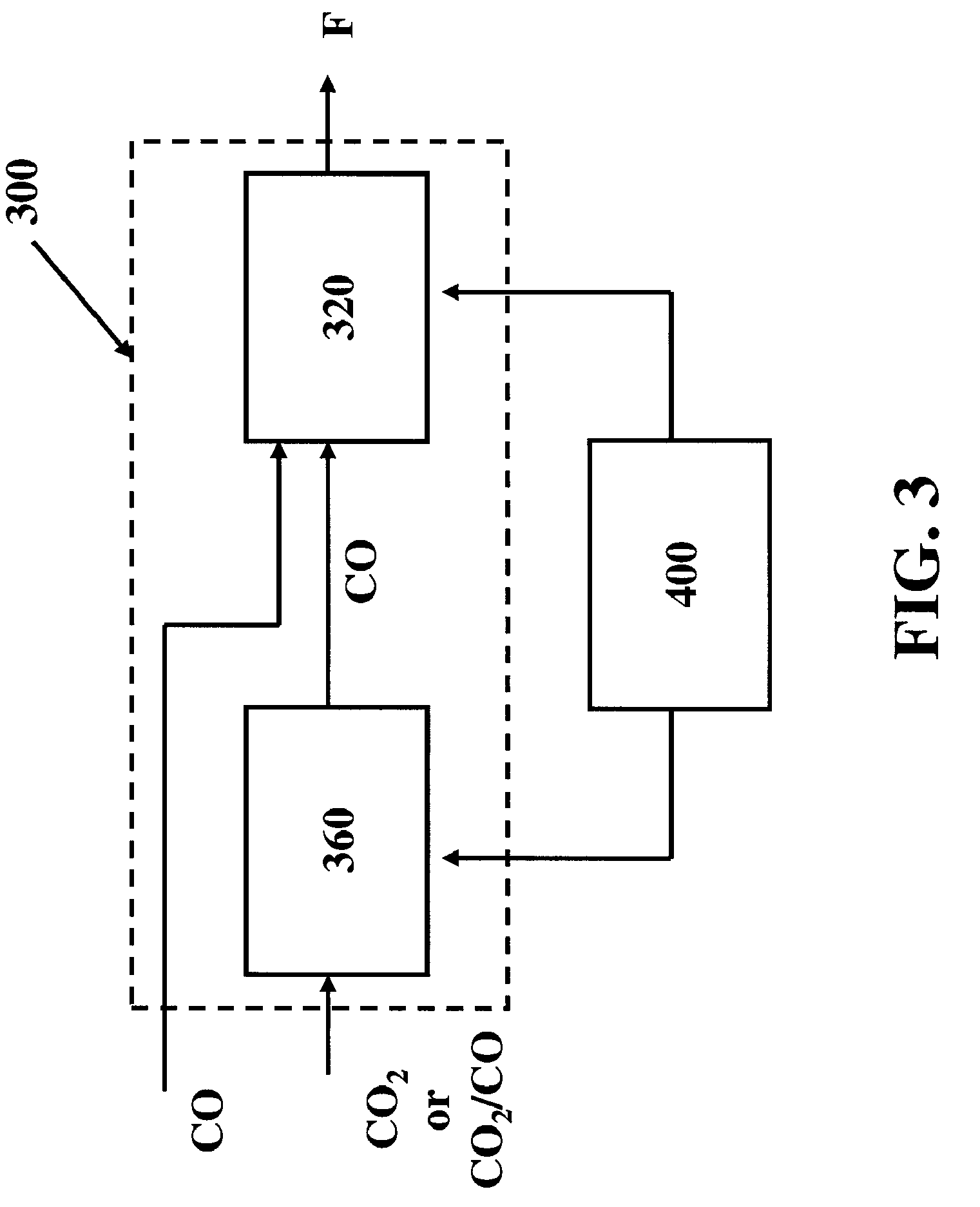Systems, methods, and compositions for production of synthetic hydrocarbon compounds
- Summary
- Abstract
- Description
- Claims
- Application Information
AI Technical Summary
Benefits of technology
Problems solved by technology
Method used
Image
Examples
Embodiment Construction
[0042] The present invention comprises systems, methods and compositions for making hydrocarbon compounds. Complete combustion of hydrocarbon fuels like coal, natural gas, liquid petroleum gas, ethanol, methanol, gasoline, kerosene, diesel fuel, and other known fuels primarily results in two basic substances—carbon dioxide and water. When burning such fuels, the main reaction is as follows:
CnH2n+2+(n+(2n+2) / 2)*O2Combustion energy (High Heating Value)+n*CO2+(2n+2) / 2*H2O (water). (1)
[0043] For example, for an average value of n=10, 10% more moles of water is produced than carbon dioxide. The number of oxygen moles used is equal to a sum of one mole for oxidizing carbon and a half of a mole plus 10% to oxidize hydrogen, 1.55 moles in total. As used herein, “High Heating Value” (HHV) is the amount of heat produced by the complete combustion of a unit quantity of fuel when all products of the combustion are cooled down to the temperature before the combustion and the water vapor form...
PUM
| Property | Measurement | Unit |
|---|---|---|
| Temperature | aaaaa | aaaaa |
| Electric energy | aaaaa | aaaaa |
| Pressure | aaaaa | aaaaa |
Abstract
Description
Claims
Application Information
 Login to View More
Login to View More - R&D
- Intellectual Property
- Life Sciences
- Materials
- Tech Scout
- Unparalleled Data Quality
- Higher Quality Content
- 60% Fewer Hallucinations
Browse by: Latest US Patents, China's latest patents, Technical Efficacy Thesaurus, Application Domain, Technology Topic, Popular Technical Reports.
© 2025 PatSnap. All rights reserved.Legal|Privacy policy|Modern Slavery Act Transparency Statement|Sitemap|About US| Contact US: help@patsnap.com



